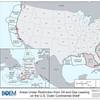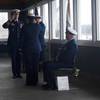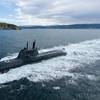More than 40 U.S. Coast Guard, State of Texas, maritime industry and local emergency responders attended the American Salvage Association’s (ASA) Marine Salvage and Emergency Response training course last month in the Houston-Galveston area presented by the ASA Training Committee.
Designed to train students on how to coordinate proactive marine casualty response operations, this two-day program exposed students to a wide variety of course modules led by ASA members and industry experts in salvage law, naval architecture, commercial diving, environmental policy, and emergency response operations.
“Since 2003, the ASA has presented a number of Marine Salvage courses every year to Federal, State and local responders throughout the US to continuously improve the nation’s ability to respond to marine casualty events. This course featured senior salvage executives from the nation’s major salvage companies presenting industry best practices to promote operational safety, minimize environmental impacts and prevent the losses of ships and cargoes,” said ASA President, Jim Elliott.Elliott noted that this one-of-a kind course has also been presented internationally.
The marine salvage course also included an exclusive tour of an emergency response depot and equipment demonstration. Held in Galveston, Texas at the global headquarters of an ASA General Member, attendees witnessed firsthand the vast array of emergency response capabilities and resources maintained by U.S. salvage companies and the logistical expertise required to mount an effective response to wide variety of marine casualty events. Some of the equipment on display included:
-Oil lightering and dewatering packages
-Portable marine firefighting equipment
-Commercial diving and subsea equipment
-Heavy lift cranes and barges
-Oil spill response equipment
In addition to ASA member resources, attendees were also provided with the opportunity to tour the Port of Houston’s Mobile Command Center and the Port of Houston Fire Department’s FIREBOAT 2 which also gave a spectacular display of its speed and pumping capacity.
“The membership of the ASA Training Committee takes great pride in these opportunities to share their unique trade, craft and work experiences with other professionals in and around the maritime industry. Some of the greatest outreach work done by the ASA are these training courses which expose course participants to the multiple facets and technical skills involved in marine emergency response situations, which leads to enhanced preparedness and knowledge to deal with emergent response issues in the local community. The benefit is mutual between the local community and the ASA membership, and the ASA looks forward to arranging and producing these courses wherever invited.” said ASA Training Committee Chairman, Tim Williamson.












